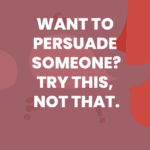Table of Contents
Sales quotes offer inspiration and insights into what sales is all about.
Many people and entire companies get it wrong.
Instead of heeding the wisdom of these sales quotes and taking a people-focused approach to selling, they make the mistake of believing sales is about nothing more than the bottom line.
This causes them, ironically, to make less money than they would have by understanding this truth:
The process of sales is nothing more than figuring out what people want and giving it to them.
All of these sales quotes are based on that notion. Embrace them and watch your business soar.
This sales quote will narrow your focus

I have a saying I use to train sales teams, ‘The pain is the pitch.’ If you can articulate the pain a prospect is feeling accurately, they will almost always buy what you are offering. A prospect must have a painful problem for us to solve and charge money for our solution.
When I do sales calls for my business, the first question I ask is:
“What are the pain points or problems you’re dealing with that led to you reaching out to me?”
It helps set the tone for the call and also establishes the real reason why they are there. No one hops on a call just because they are looking for information. There’s a reason they reached out and the closer you get to the real reason, the more likely you’ll be able to sell them because you understand the problem and can make your product or service the bridge to the solution.
I spoke with a woman who wanted to make money writing about fitness and landing some online coaching clients. We went back and forth during the “discovering the problem” part of the call. I asked my usual questions but still didn’t feel like I got to the root of the issue, so I asked one more time:
“Are you sure there isn’t anything else that’s holding you back right now?”
She sighed and said “Well, actually there’s one more thing. My husband and I started a business that made 7 figures, but it all collapsed after the pandemic.” Her deepest fear was putting time and effort into a strategy that would end horribly again.
After I understood the true pain, I talked about how we could help her avoid the same pitfalls again. She was convinced. Not only did she join, but she began to thrive immediately, which leads to my last point.
It might feel a bit cruel or manipulative to harp on people’s pain points, but that’s what needs to be done so you can get them in the door and improve their lives with your product or service.
The best salespeople are givers, not takers

To sell well is to convince someone else to part with resources—not to deprive that person, but to leave him better off in the end.
There’s one limiting belief that holds people back from being able to sell well.
It’s the belief that they are taking from the customer instead of giving them what they want and need.
I love the fictional example below—it expands on this sales quote and drives home the point.
Say you were tasked to give someone a check for a million dollars.
Would you be afraid to reach out to them? Would you be passive and timid about getting their attention or getting them to accept the check?
Or, since you know you’re helping this person, would you go out of your way to be sure they got what they clearly want?
If you want to sell better, treat your product like that million-dollar check.
First, this means you make sure the product you’re selling is worth the money.
If you’re the creator of the product, build something that delivers 10x the value of what you charge. This will make both parties feel like it’s a fair exchange.
If you’re a salesperson, choose a company with products that provide the same level of value.
Here’s a tactic some sales managers use to get their salespeople fired up and confident. They make them review testimonials of successful customers before they hop on their calls for the day.
With client success top of mind, they’re more willing to believe in their product and themselves. They get people to part with their money because they know they’re doing their prospects a favor.
Even if you have to use persuasive techniques to get people to buy, first and foremost always be looking to serve and help them above all else.
Related:
My favorite psychological principle to use in sales

Consistency is key in persuasion. Once people make a commitment, they are more likely to stick to it.
Salespeople like to use “qualifying questions” to get people to commit to labels the salesperson will remind them of later.
I coach writers on becoming full-time professionals.
I like to ask these questions before I make the pitch:
- How soon are you looking to grow your writing income?
- Why is important to fix [insert problems they mentioned] right now as opposed to later?
- How serious are you about becoming a full-time writer?
Ask open-ended questions and do way more listening than talking. Done this way, the prospect will convince themselves that working with you is the right decision and, if you do it right, they’ll try to convince you that they’re worthy of the opportunity.
They’ll start qualifying themselves to you by repeating how serious they are, how they are tired of experiencing the pain, and how this is finally the time they are going to change.
After that, drive home the consistency by repeating their answers back to them and getting them to double-down on their commitments, like this:
So Mary. Just to make sure we’re on the same page: You’re looking to grow your writing income now because you’re tired of letting your life pass by without pursuing a dream that’s important to you. You’re ready to take action on this now because you’re getting older and you don’t want to have regrets at the end of your life. And you’re dead serious about getting this problem fixed now. Does that sound about right?
First, this makes them feel understood. Second, you just reminded them of all the qualities they claimed to have, which makes it harder to back out when it’s time for the pitch.
When it gets to the “objection handling” part of the conversation, don’t be afraid to bring up their past commitments.
Let’s say they reply with “I need to think.”
You can say something like, “Totally get it. Earlier though, you said this was something that needed to happen now and you’re done sitting on the sidelines. Is there anything else about [product/service] that I can clarify for you?”
Continue to listen and probe with questions until they convince themselves to buy.
Stop trying so hard to make the sale (do this instead)

People hate to be sold to…but they love to buy!
This sales quote is about masterminding your mindset and understanding the mindset of your buyers.
Abandon the belief that you have to get everyone to buy.
Abandon the belief that you’re trying to get people to buy.
Instead, adopt the mindset that you’re coaching them to make a decision that will benefit their life—even if that means saying no to you.
You’re not trying to reach everyone.
You’re trying to find the people you can help and put them in a position where buying is a no-brainer. Don’t try to make them see the world your way.
Figure out what they want first and then decide whether or not your product or service is a good fit.
If it is, you won’t have to twist their arm to make the sale. You’re simply making them aware of how life will get better when they buy.
You can do this in the following ways:
- Avoid getting into arguments with prospects. You’re both on the same side. Instead, take a curious approach where you ask them questions that help them see the light.
- Use social proof. If you have stories or testimonials of people who were once in their shoes but transformed their lives using your product or service, tell those stories to increase their confidence
- Don’t list off the features of your products. Spend more time talking about the outcomes they want and the lifestyle they’ll have as a result of using your product.
- Actually care about your customers and have empathy. The more you genuinely care about helping people, the easier it will be to help them feel comfortable with their decisions. Alleviate their fears and answer their questions until there’s no doubt left.
- Spend way less time talking than your prospect. When you understand that the process of sales is mostly listening, you’ll give people the one thing they need to make sure you’re the person who can help them—the feeling that you understand their problems.
When it comes to sales, understand this truth about humans

People don’t buy for logical reasons. They buy for emotional reasons.
People spend tons of money on purchases that make them feel good.
For example, people will spend hundreds of thousands of dollars on a home and go into debt for it because of the pride and warm feelings that come with home ownership.
You will run into prospects that object to paying for what you offer, but would easily spend the same amount of money on something else.
I see it all the time: people who tell me they can’t afford a few hundred or thousand bucks to work with me, but will gladly spend the same amount of money on the latest iPhone.
Understanding what motivates people is the key to sales.
Drew Eric Whitman came up with “The Life Force 8” in his best-selling book, “Cashvertising,” and says these are the eight basic human instincts hardwired into every person:
- Survival, enjoyment of life, life extension
- Enjoyment of food and beverages
- Freedom from fear, pain, and danger
- Sexual companionship
- Comfortable living conditions
- To be superior, winning, keeping up with the Joneses
- Care and protection of loved ones
- Social approval
People also have these “learned human wants”:
- 1) To be informed
- 2) Curiosity
- 3) Cleanliness of body and surroundings
- 4) Efficiency
- 5) Convenience
- 6) Dependability/quality
- 7) Expression of beauty and style
- 8) Economy/profit
- 9) Bargains
I’ve applied these principles to increase sales.
I used to talk about how good my products were, listing off all the features. Instead of focusing on the emotional reasons for people to buy my product, I focused on the logical ones.
My sales increased dramatically when I focused on how their lives would change. When I highlighted the emotional reasons for buying my product.
Mostly, I started telling stories about what it’s like to live the writer’s lifestyle and help them see it for themselves.
I talk about how awesome it is to reach tons of people and be admired (social approval). About how much more comfortable and free life is after you have a business that provides consistent income (survival, enjoyment of life, life extension).
I share how you can better provide for the ones you love by having more time and money to care for them (care and protection of loved ones). I might mention the feeling of proudly telling all your doubting friends and acquaintances that you’re now a professional writer (to be superior, winning, keeping up with the Joneses).
I’ll also give them good reasons to buy now, like a special deal that disappears soon (bargain), or mention how my systems will help them save time by knowing the exact strategies to use (efficiency). I’ll mention how they can use the system in just [x] amount of time at their own pace (convenience).
Spend less time talking about what your product does and more time on what it will do for them.
When you alleviate fears and paint the picture of success, you’re putting your customers into a high-arousal emotional state that makes them delighted to buy.
Become a sales master
There are few skills more valuable than sales.
These sales quotes have armed you with the knowledge you need to subtly and persuasively guide your customer to the right decision.
All of these sales quotes focus on the fact that you are a human being talking to other humans.
Not a company talking at prospects and customers without first understanding who they are as people.
Adopt the attitude of a curious, helpful, and genuine coach.
That subtle mindset shift will lead to an increased bottom line and better relationships with the people you serve.



